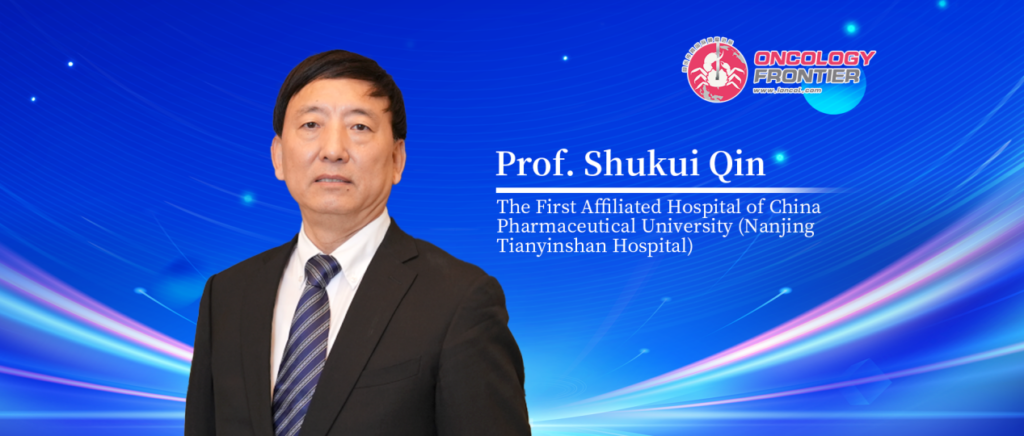
Editor's Note: In recent years, there have been two significant changes in the field of liver cancer. On the one hand, with the development of treatment technologies, the prognosis of liver cancer patients has significantly improved, shedding its title as the "king of cancers." On the other hand, China's rapid advancements in liver cancer diagnosis and research have contributed a series of "Chinese solutions" and "Chinese wisdom" to global liver cancer prevention and treatment. On the eve of the "2024 Annual Progress Seminar on Chinese Clinical Oncology (BOC) and Best of ASCO 2024 China," Oncology Frontier interviewed the renowned clinical oncology expert, Professor Shukui Qin from The First Affiliated Hospital of China Pharmaceutical University (Nanjing Tianyinshan Hospital), to review China's achievements in liver cancer prevention and treatment research and to share the latest advances in systemic therapy for liver cancer.Chinese Wisdom, Chinese Solutions
Advancing Liver Cancer Adjuvant Therapy into the Immunotherapy Era
Oncology Frontier: In the early to mid-stage treatment of liver cancer, you have published the global multicenter IMbrave050 study in The Lancet as the first author and global scientific steering committee chairman. Can you share the progress of this research?
Professor Shukui Qin: Last year, we published two phase III clinical trial results in The Lancet: the CARES-310 study of the “double Ai” combination for first-line treatment of advanced liver cancer, and the IMbrave050 study of the “T+A” regimen (atezolizumab + bevacizumab) for adjuvant treatment of early to mid-stage high-risk liver cancer post-surgery. The latter study opened the door to adjuvant immunotherapy for liver cancer, promising to drive a series of research results.
The IMbrave050 study is the first global phase III clinical trial to report positive interim results for adjuvant immunotherapy in liver cancer, marking a milestone in the history of liver cancer treatment. Along with Professor Pierce Chow from Singapore, I serve as the global scientific steering committee co-chair of this study, with 37 centers in China actively participating, contributing significant “Chinese wisdom” and “Chinese data.” The interim analysis showed that “T+A” significantly improved recurrence-free survival (RFS: HR 0.72, P=0.012) compared to active surveillance. However, after the sponsor announced the first interim analysis results early last year, many patients randomized to the active surveillance group requested to switch to “T+A” adjuvant therapy. This cross-treatment may cause considerable interference with and negatively impact the final results, reflecting the challenges of adjuvant therapy research for liver cancer.
On the other hand, there are several promising “Chinese solutions” for adjuvant immunotherapy in liver cancer. For example, Professor Cheng Shuqin’s phase II study on sintilimab monotherapy for postoperative adjuvant treatment of liver cancer showed positive results, significantly reducing the risk of recurrence (PFS HR 0.534, P=0.002), with related findings published in Nature Medicine. More adjuvant immunotherapy studies for liver cancer are expected in the future. Academician Fan Jia and I co-lead a phase III study on the “double Ai” combination for adjuvant therapy, having completed patient recruitment, and we hope to achieve positive results to offer new treatment options for liver cancer patients.
Currently, molecular-targeted drugs, immune checkpoint inhibitors, and oxaliplatin-containing systemic chemotherapy are primarily used for systemic treatment of advanced liver cancer. With improved efficacy, we hope to achieve “shifting the gate forward,” meaning these new drugs/therapies can play a role in neoadjuvant, adjuvant, and perioperative treatments, increasing the cure rate for patients. Chinese experts in hepatobiliary surgery and interventional therapy have conducted extensive research, such as increasing the number of patients eligible for surgery through hepatic artery intervention and systemic therapy, and exploring various adjuvant treatments to reduce the risk of recurrence. Academician Fan Jia has been actively exploring mechanisms like hepatocarcinogenesis, immunoregulation, and optimizing targeted and immunotherapy for liver cancer. Academician Dong Jiahong has systematically explored the paradigm and technology system of precision liver surgery and actively conducted Y90 resin microsphere treatment for liver cancer. Additionally, the aforementioned hepatology experts are exploring more reasonable antiviral treatment plans, more accurate liver cancer risk assessment models, and more feasible liver cancer monitoring schemes, aiming to prevent the occurrence and development of liver cancer. As oncology physicians, we need to learn from these experts seriously, and multidisciplinary and multi-approach integration will become a feature of comprehensive early treatment of liver cancer in China.
Continuous Efforts and Relentless Progress
Breaking the Bottleneck of Survival Benefits in Advanced Liver Cancer Treatment
Oncology Frontier: In the field of advanced liver cancer treatment, the CARES-310 international study you led has been published in The Lancet. The 2024 ASCO conference further reported the final OS results. Can you introduce this study and the current status of liver cancer immunotherapy? How do you view the impact of the Chinese original plan on clinical practice?
Professor Shukui Qin: In the past decade, immune checkpoint inhibitors have achieved breakthrough progress in multiple solid tumors, significantly changing the strategies and landscape of anti-cancer treatment. The liver is an immune-privileged organ with abundant Kupffer cells, macrophages, and lymphocytes, providing a basis for immunotherapy. Therefore, continuous progress has been made in the field of liver cancer, including many Chinese original new drugs and plans. From last year to this year, two phase III clinical trials for first-line treatment of liver cancer have garnered significant global academic attention.
The CARES-310 study used the “double Ai” combination for first-line treatment of advanced liver cancer, with interim analysis results published last year in The Lancet. The study confirmed that the “double Ai” combination significantly improved median progression-free survival (mPFS, HR 0.52, P<0.0001) and mOS (HR 0.62, P<0.0001). At the 2024 ASCO conference in June, we further reported the final analysis results for OS, with an mOS of 23.8 months. This is the longest mOS achieved in phase III clinical trials for first-line treatment of liver cancer, attracting significant attention and praise from the global medical community. Achieving such results is commendable, extending the mOS of advanced liver cancer from about 6 months in the past to nearly 2 years, comparable to the efficacy of lung, breast, and gastric cancers. This is a completely Chinese original plan, a collaboration between Chinese researchers and domestic pharmaceutical companies, overcoming numerous difficulties, carefully designed, and strictly quality-controlled, to achieve the expected results, bringing such exciting innovative results and treatment plans to Chinese and global liver cancer patients.
This year’s ASCO conference also reported another key study in liver cancer, the CheckMate-9DW international study, in which I also participated as a member of the global scientific committee (SC) and the leading principal investigator (PI) in China. Previously, the HIMALAYA study demonstrated the efficacy and safety of dual immune first-line treatment for liver cancer, i.e., the “STRIDE regimen.” The CheckMate-9DW study’s “Y+O” dual immune first-line treatment also achieved positive results, with an mOS of 23.7 months, significantly reducing the risk of death by 21% compared to the control group (HR 0.79, P=0.018), further consolidating the status of dual immune first-line treatment for liver cancer.
New first-line treatment regimens for advanced liver cancer continue to emerge. Recently, domestic pharmaceutical companies disclosed that the phase III study of toripalimab combined with bevacizumab for first-line treatment achieved positive results, with data to be shared at future major academic conferences. From actively participating in and leading global multicenter studies initiated by international pharmaceutical companies to actively participating in and organizing international and domestic multicenter studies initiated by domestic pharmaceutical companies, Chinese researchers continuously achieve fruitful results in liver cancer drug clinical research. This success relies on the cooperation of pharmacologists, biostatisticians, clinical monitoring, coordination and management teams, and the trust and cooperation of sponsors, showcasing more Chinese strength and wisdom to the world.
However, we must not be complacent. The unavoidable issue today is that first-line drug treatment for liver cancer seems to have reached a “bottleneck,” with difficulty breaking the median overall survival of 24 months and an objective response rate of about 30%. To further break this bottleneck, we need to optimize current targeted and immune treatments or develop more drugs with new mechanisms. As mentioned earlier, Academicians Fan Jia, Dong Jiahong, Professors Shen Feng, and Zhou Jian have conducted extensive research in the basic and translational research of liver cancer, providing models for us. United efforts can help break the bottleneck, laying more foundations for the upgrade and optimization of liver cancer treatment. We hope that with the joint efforts of colleagues nationwide, more innovative treatment drugs or plans can be promoted in clinical practice, benefiting more liver cancer patients.


